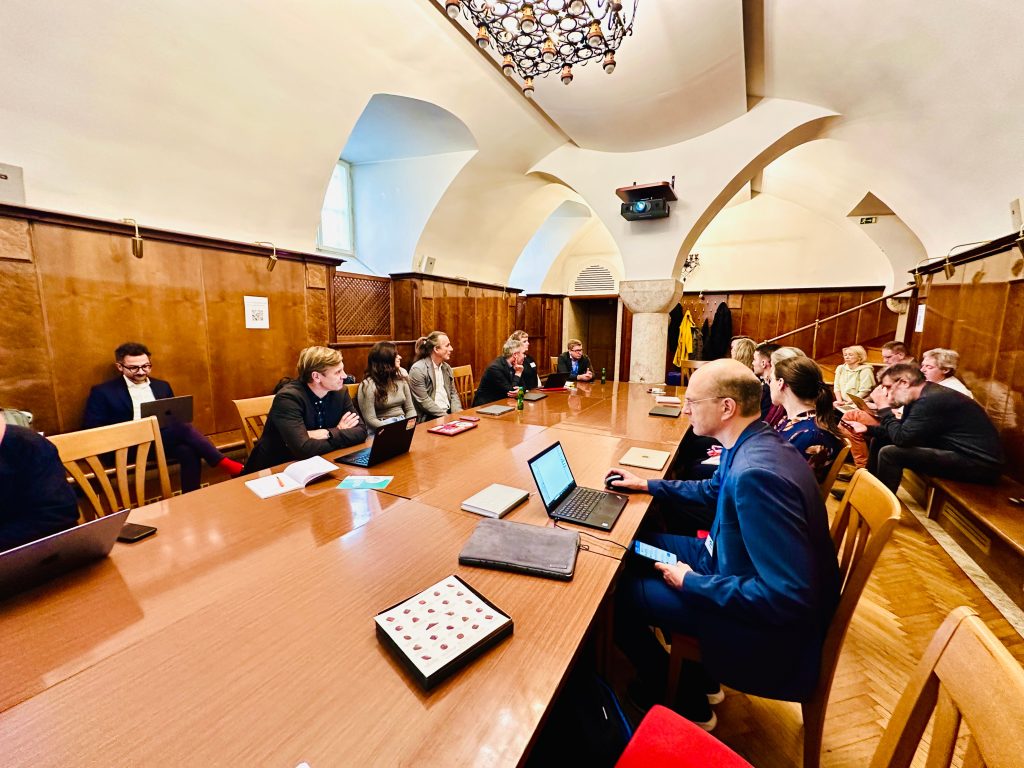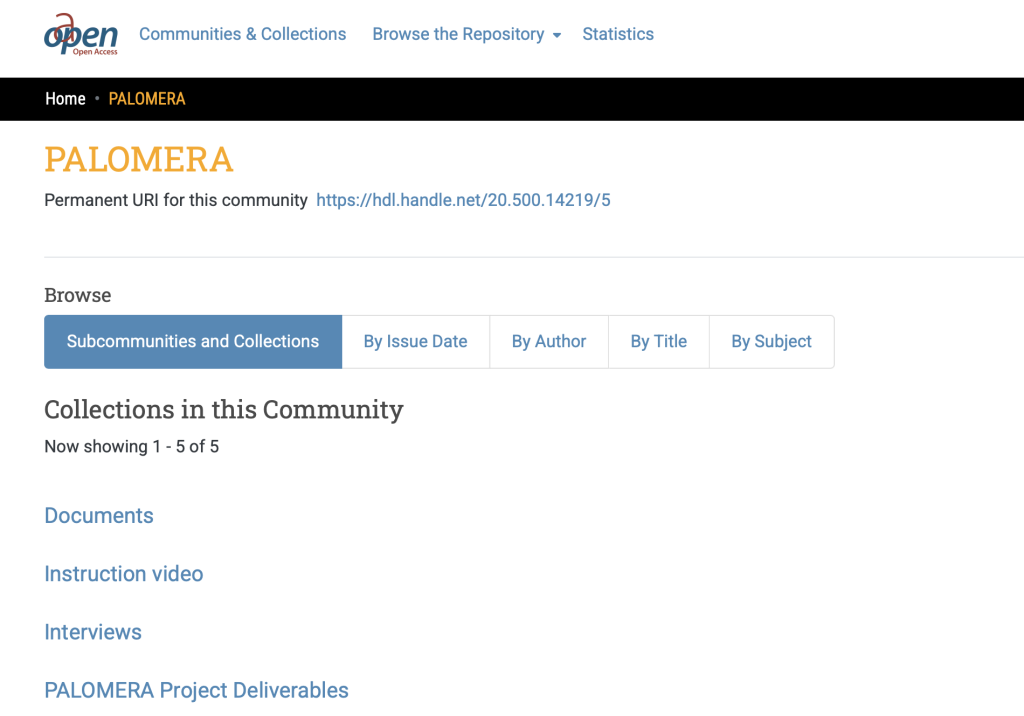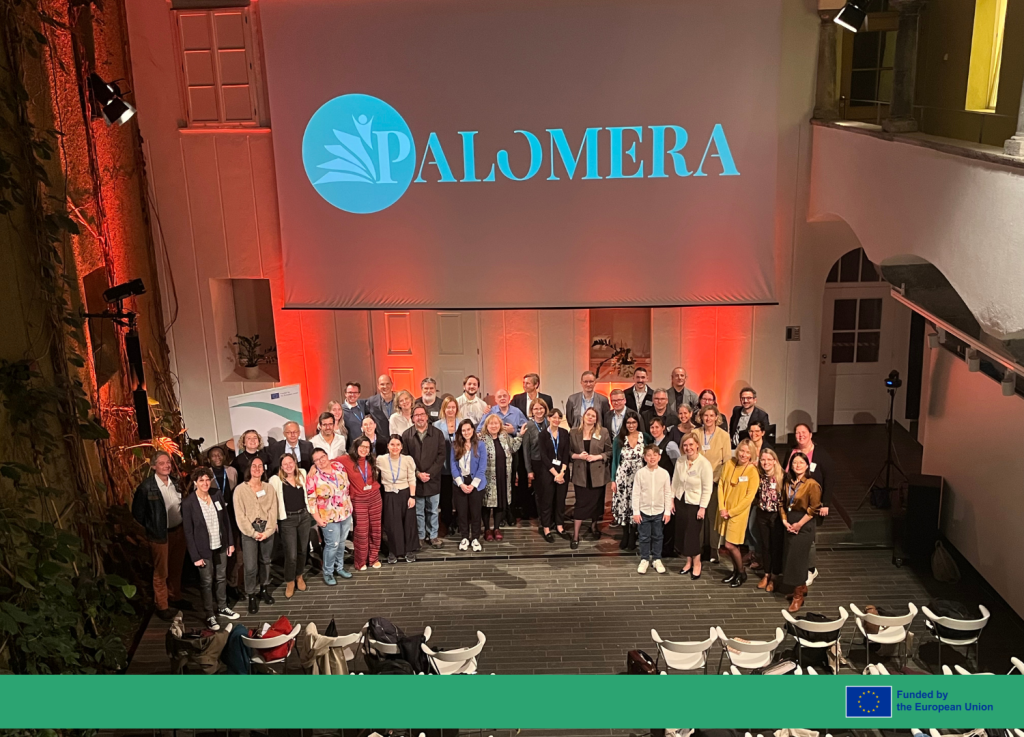
A little over two years ago, the PALOMERA project set out to understand why so few open access (OA) funder policies include books, and to provide evidence-based and actionable recommendations to change this. Funded by the European Union and coordinated by OAPEN and OPERAS, it encompassed 16 partners working together to deliver the opportunity for a better Policy Alignment of Open Access Monographs in the European Research Area (ERA) while developing first of a kind resources for the OA books stakeholders.

OA Book Policy Recommendations
In October 2024, during an in-person and online conference, the project announced its evidence-based and actionable OA book policy recommendations for fostering robust policy development and assisting policymakers in cultivating a resilient culture of OA book publishing. These recommendations are also expected to benefit other stakeholders such as publishers, researchers, infrastructure providers, libraries, and national policymakers alike. The in-depth report provides three levels:
- General recommendations that should be considered by all stakeholders with an interest in developing policies for OA books.
- Common recommendations for Research Performing and Funding Organisations, and policymakers given how they are able to influence the behaviour of authors of OA books via local, national, and international policies and mandates that incentivise and reward the publication of OA books.
- Stakeholder-specific recommendations to support all the other stakeholders that are equally valuable in the OA book life cycle.
For each set of recommendations, the project defined a timeline by prioritising recommendations in terms of short, medium, and long-term time frames. This work was based on two very important outputs of the projects: the Knowledge Base and Data Analysis. As this is a stakeholder-centric project, it performed validation exercises with the community to check the validity of 1) the data collection and methodology; 2) the analytical approach, methodology, and key findings; and 3) the recommendations themselves. This approach was chosen to increase the engagement with all relevant stakeholders and to strengthen the outcomes of PALOMERA.

The Knowledge Base and Data Analysis
The Knowledge Base is a collection of documents such as reports, policies, statistics, survey results and interview transcripts relevant to OA policies regarding OA books in the ERA. The collection was created as part of the data collection during the PALOMERA first project phase in 2023. Hosted on OAPEN’s website, it includes over 650 documents in various languages, open to anyone to browse and read. It aims to help the community as a first step towards a better overview of what documents exist or are available. These materials were analysed and created a foundation for the recommendations building process. They also helped enrich the OA Books Toolkit aimed at promoting and supporting OA to academic books.
Funder Forum
But this was not all that the PALOMERA project delivered. Another goal was to improve the collaboration and communication between the key stakeholders. Through the various events, workshops and meetings, it raised awareness but also questions on what’s next. A very important component of these activities was and still is the Funder Forum representing a collaborative and open forum where funders gathered during the PALOMERA project to discuss OA book policy development within the ERA and beyond. Project partners are now continuing the Funder Forum under the name of Policy Forum for OA Books to better reflect its expanded mission from 2025 onward—supporting all OA book policymakers, not just funders.
For anyone interested in reading the project outputs, they can find them on their Zenodo community and also contact Niels Stern for ideas on collaboration within the Funder Forum and beyond. Finally, you can watch a short clip below on the impact PALOMERA had so far.


